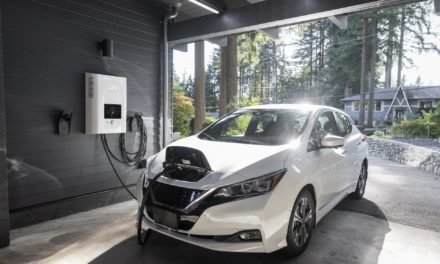Petrol cars and electric cars are two types of vehicles that use different sources of energy to power their engines. Petrol cars use gasoline, a fossil fuel that is derived from crude oil, to combust and generate mechanical energy. Electric cars use electricity, a form of energy that can be produced from various renewable or non-renewable sources, to charge and run an electric motor. Both types of cars have advantages and disadvantages, but one of the main factors that influence their popularity and feasibility is their running costs.
The running costs of a car are the expenses that are incurred by owning and operating the car, such as fuel, maintenance, insurance, taxes, and depreciation. The running costs of a car depend on various factors, such as the model, the mileage, the driving habits, the location, and the market conditions. However, in general, electric cars have lower running costs than petrol cars, for the following reasons:
- Fuel costs: Electric cars have lower fuel costs than petrol cars, because electricity is cheaper than gasoline per unit of energy. According to the U.S. Department of Energy, the average cost of electricity in the U.S. in 2020 was 12.8 cents per kilowatt-hour (kWh), while the average cost of gasoline was 2.18 dollars per gallon. Assuming that an electric car consumes 0.3 kWh per mile and a petrol car consumes 0.05 gallons per mile, the fuel cost per mile for an electric car would be 3.84 cents, while the fuel cost per mile for a petrol car would be 10.9 cents. This means that an electric car can save about 7 cents per mile on fuel costs compared to a petrol car.
- Maintenance costs: Electric cars have lower maintenance costs than petrol cars, because they have fewer moving parts and less wear and tear. Electric cars do not have components such as spark plugs, oil filters, timing belts, or exhaust systems, which require regular servicing and replacement in petrol cars. Electric cars also have regenerative braking, which reduces the friction and heat on the brake pads and extends their lifespan. The only major maintenance costs for electric cars are the tires and the battery, which may need to be replaced after a certain number of cycles or years. However, the battery costs are expected to decrease as the technology improves and the production scales up. According to a study by the University of Michigan, the average maintenance cost for an electric car in the U.S. in 2017 was 6.6 cents per mile, while the average maintenance cost for a petrol car was 10.1 cents per mile. This means that an electric car can save about 3.5 cents per mile on maintenance costs compared to a petrol car.
- Insurance costs: Electric cars have similar or slightly higher insurance costs than petrol cars, depending on the model, the driver, and the insurer. Electric cars are usually more expensive to buy than petrol cars, which means they have higher premiums and deductibles. Electric cars are also more likely to be involved in accidents, because they are quieter and less noticeable by other road users. However, electric cars are also safer and more reliable than petrol cars, which means they have lower claims and repair costs. Electric cars also have lower emissions and environmental impact, which may qualify them for discounts or incentives from some insurers. According to a report by NerdWallet, the average annual insurance cost for an electric car in the U.S. in 2020 was 1,226 dollars, while the average annual insurance cost for a petrol car was 1,427 dollars. This means that an electric car can save about 201 dollars per year on insurance costs compared to a petrol car.
- Tax costs (US): Electric cars have lower tax costs than petrol cars, because they are exempt or eligible for reductions from some federal, state, or local taxes. Electric cars do not pay the federal gasoline tax, which is 18.4 cents per gallon, or the state gasoline tax, which varies from 8.95 cents to 58.7 cents per gallon depending on the state. Electric cars also do not pay the vehicle emissions fee, which is a charge based on the amount of pollutants that a car emits. Electric cars may also benefit from the federal tax credit, which is a one-time deduction of up to 7,500 dollars from the income tax for buying a new electric car. Electric cars may also qualify for other tax incentives, such as rebates, exemptions, or credits, from some state or local governments. According to a study by the International Council on Clean Transportation, the average tax cost for an electric car in the U.S. in 2018 was 0.9.
- Like in the US, UK electric cars qualify for discounted tax rates. Electric car tax in the UK is currently zero for most electric vehicles, but it will change from April 2025. Electric cars registered from April 2025 will pay the lowest rate of £10 in the first year, then move to the standard rate which is currently £1651. Electric cars registered before April 2017 will remain exempt, but electric cars registered between April 2017 and April 2025 will have to pay the £165 road tax and may also be subject to the expensive car supplement. Electric company car tax for electric vehicles will also increase gradually from 2% to 5% by 2027/2028. Electric cars may also benefit from other tax incentives, such as exemption from congestion charges and low-emission zones in some cities.
As EV development and uptake continue we’re sure that prices of Electric cars will start to drop and we’ll all be able to take advantage of the benefits of being battery powered.
Let’s hear from you
Have you moved from a petrol/diesel car to an electric car or vise versa? We’d love to hear from you in the comments below.





